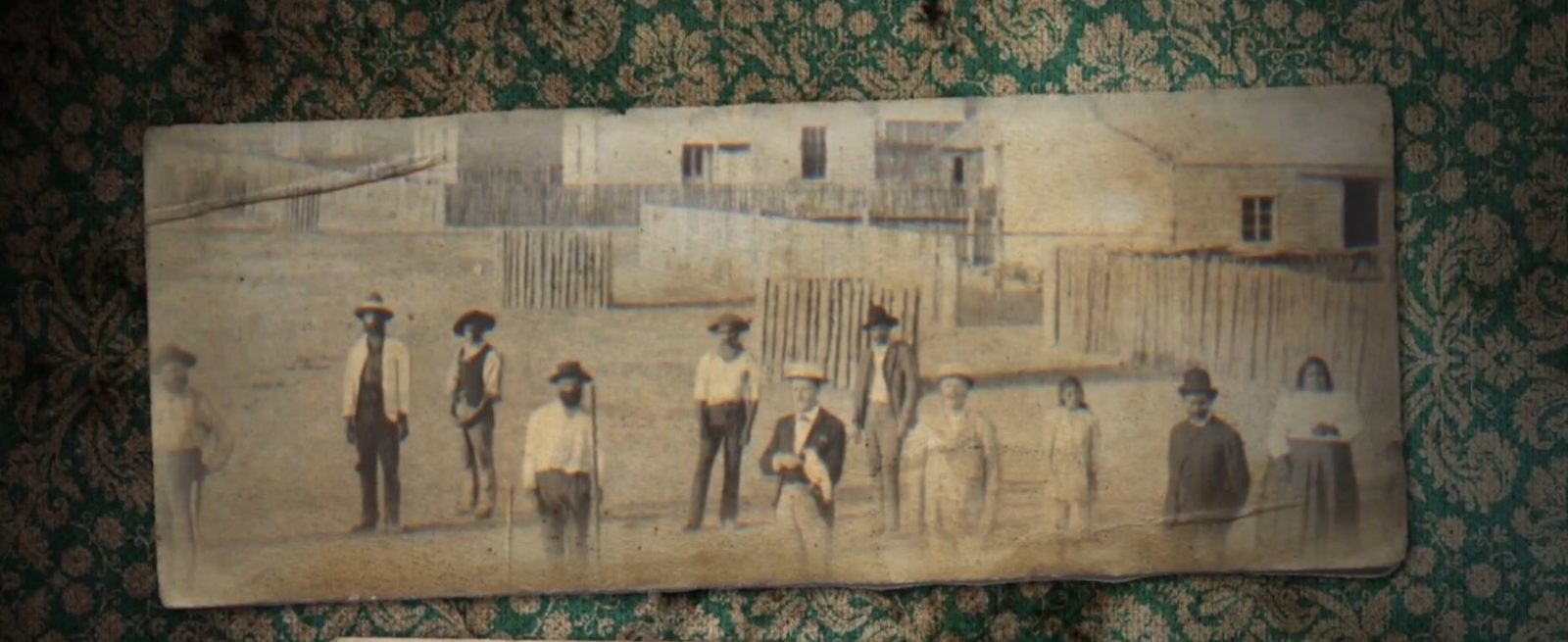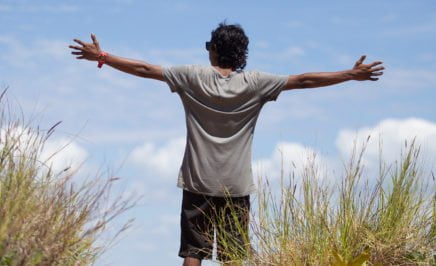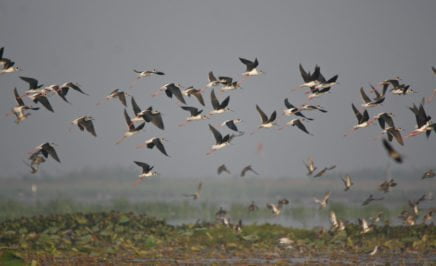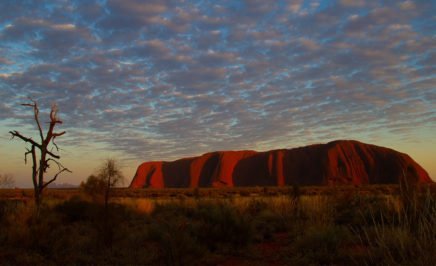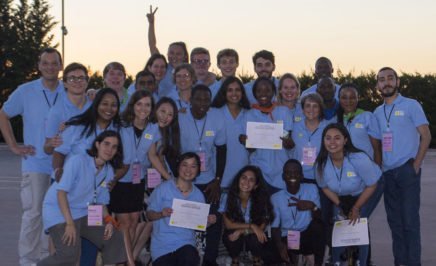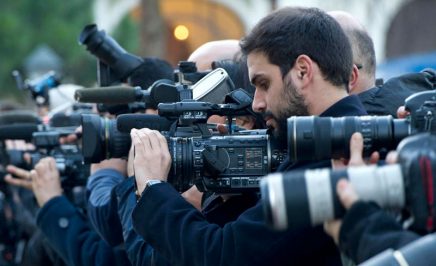“People would come from everywhere just to come up and shake Dad’s hand” — Aunty Pam Pederson
Sir Doug Nicholls lived an incredible life. He was born in 1906 at Cummeragunga on the land of his people, the Yorta Yorta people.
His early life was lived under the Orwellian power and control of the Aborigines Protection Board. As a young boy, he witnessed his sister’s forced removal by government authorities: “They just came in and ruthlessly threw our girls into the car and their mothers hung to them, and I can see my mother hanging on to my sister, 16 years old, they threw her in the car.” His grandson Gary Murray recalls this harrowing experience as one of the things “that drove Grandfather in trying to do the right thing by everybody.”
Sir Doug Nicholls left school at the age of 14, when the Aborigines Protection Board forced him to leave his home and find work as a labourer. In his lifetime, he overcame the trauma of losing his sister, as well as facing racism and prejudice, and went on to have an incredible career as a professional sportsman and leader.
As he himself put it:
“I was good, I wanted to be on top. Dominating my mind: I am their equal.”
“Running, boxing, football – a champion in everything, all at the one time. It’s totally mind-blowing for me,” his grandson Jason Tamiru recalls.
Add to that list pastor, activist, Father of the Year and Governor of South Australia.
“I get very emotional about it, coming from Cummera, and then becoming the Governor of South Australia. No-one would ever dream that an Aboriginal person would become the Governor of a state,” says his nephew Robert Nicholls.
“No-one would ever dream that an Aboriginal person would become the Governor of a state”
doug’s nephew robert nicholls

After a stellar football career with Fitzroy and representing Victoria in the State of Origin, Sir Doug went on to become a civil rights leader in Australia. He was a founding member of the Aborigines Advancement League in Victoria, whose Thornbury base remains a hub for many in the Koori community. There, the home ground of the Fitzroy Stars football club is known as the Sir Doug Nicholls Oval.
Together with his wife Lady Gladys Nicholls, Sir Doug played a pivotal role in fighting for the rights of Aboriginal people in Australia. Among many other things, Lady Gladys was a founding member of the National Council of Aboriginal and Islander Women, and established a hostel for Aboriginal girls in Northcote (now the Lady Gladys Nicholls hostel). Together, they worked tirelessly to improve conditions for their people in Melbourne, across Victoria and nationally.
“Mum and Dad worked so hard. We forget about the women at times, but Mum was the person behind Dad,” his daughter Aunty Pam Pederson recalls.
“He had that saying: How can we soar like Eagles when you feed us like chooks? He knew from the start, virtually from the early days when he saw his sister taken away…He met injustices head on,” recalls Gary Murray, his grandson.
“He had that saying: How can we soar like Eagles when you feed us like chooks? He knew from the start, virtually from the early days when he saw his sister taken away…He met injustices head on”
doug’s grandson Gary Murray
But the path that led to him being the only Australian rules footballer to be knighted was an arduous one. His VFL football career nearly didn’t get off the ground due to the racism he faced.
“He acquired a job with the Northcote football club and became a curator. He was then approached by Carlton to play football with them… This is the sad thing at Carlton, he asked to be rubbed down, and they said: ‘No, we’re not going to rub you down because you stink’,” his nephew Robert Nicholls recalls.
“Dad carried that for a long time, hardly spoke about it,” says his daughter Aunty Pam. “We have people in that club that have been thinking about what happened to Dad, so they want to do something about it. I think that’s so good, that they are going to come out and acknowledge that.”
After dominant performances with Northcote Football club in the VFA, Sir Doug Nicholls was eventually selected to play for Fitzroy in the VFL and was the only Aboriginal player in the VFL at the time.
According to his nephew Robert:
“The thing that really inspires me; 5 foot 2, a little man, walking amongst giants, trying to change the attitudes of people. Well, he has made a difference.”
In his early Fitzroy days, his daughter Aunty Pam remembers that Sir Doug continued to suffer the impacts of the racism he had experienced:
“He was in the rooms on his own. That feeling must have come across him again, that I’m not going to be accepted here.”
Legendary Fitzroy player Hayden Bunton saw that Nicholls was feeling excluded and went to sit with him: “From that game…they became good buddies,” his daughter says.
“To go over there with my grandfather and sit with him while he was getting ready is quite a beautiful image,” grandson Jason Tamiru reflects.
“What grandfather said is to get a tune out of the piano, you can play the black notes, and you can play the white notes. But to get harmony you’ve got to play both. And that was reference to reconciliation, for probably the first time. It was about working with people,” says grandson Gary.
“Later on in life, Dad decided that he wanted to take up the church and became a pastor…The way that he preached was so good. That’s where Dad really started to get into Aboriginal affairs,” his daughter Aunty Pam remembers.
“What grandfather said is to get a tune out of the piano, you can play the black notes, and you can play the white notes. But to get harmony you’ve got to play both. And that was reference to reconciliation, for probably the first time. It was about working with people”
“We had this one soldier who fought for us…that was Dad,” daughter Aunty Lillian Tamiru remembers.
This week’s AFL Indigenous round is named in Sir Doug’s honour. And this year, Sir Doug Nicholls round coincides with the 50th anniversary of the 1967 referendum, when 90% of Australians voted ‘yes for Aboriginal rights’. Sir Doug and Lady Gladys were pivotal in securing this overwhelming public support, travelling the country and appealing to the public to support us in a ‘yes’ vote.
Naming this round after Sir Douglas Nicholls “is a great honour” says nephew Robert. His daughter Lilian says she is “more than proud.”
Grandson Jason has the final word: “His legacy for me is great integrity, compassion… human rights…identity, culture, a place on the earth, that’s what he’s given me.”
